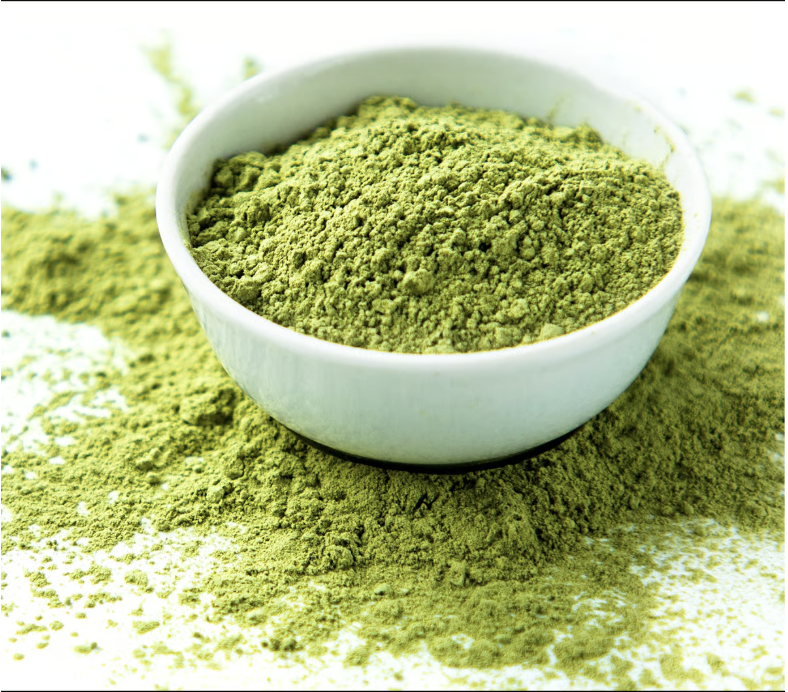Nutrition Advice
“Is Moringa Powder a Smart Addition or Just Green Dust?”
It’s called the Miracle Tree for a reason — but is moringa powder really worth the hype?

When a plant earns the nicknames “The Tree of Life” and “Miracle Tree,” you know its powder is going to draw attention. Lots of attention. Cue: moringa powder, the green dust “superfood” everyone’s talking about for hair loss, indigestion, and other too-good-to-be-true benefits.
But do these claims actually hold water?
What is Moringa Powder, Exactly?
Moringa powder comes from the dried leaves of the moringa tree (Moringa oleifera), a hardy plant native to India, Africa, and Southeast Asia.
- Zoom In: Moringa dried leaf powder is loaded with calcium, potassium, iron, protein, fiber, and antioxidants.
For over 2,000 years, people have used moringa leaves for everything, both nutrition and medicine, treating everything from malaria and diabetes to weight management.
What Scientists Have Actually Found About Moringa
Here’s the research on whether moringa can help with…
Diabetes:
The research is interesting:
- Science Says: A study of 65 adults with prediabetes found that 2.4 grams daily of moringa powder led to a 2.3% decrease in blood glucose level over 12 weeks. Meanwhile? The placebo group’s blood sugar increased by 2.1%.
Another study gave moringa powder to 35 people with diabetes 30 minutes after eating bread. Researchers found that moringa lowered blood sugar by about 1 mmol/L.
However? These studies were tiny, and moringa powder’s effects were modest. We need larger trials before we can even begin to label moringa as a ‘win’ for diabetes.
Bone Density:
Researchers artificially introduced osteoporosis in female rats and then tested moringa. They found it:
- Boosted bone mineral density in femur bones and increased serum calcium and phosphorus levels (key minerals for bone health).
- Increased bone thickness in the spine, hip, and outer bone areas. Bonus: It had gut benefits and improved liver function.
Obviously, take these rat studies with a huge grain of salt. The researchers artificially triggered menopause through ovary removal and steroid injections. Oh, and we’re not rodents.
In short, I would not count on moringa as a bone drug. Your calcium should come from food and, if needed, a standard supplement.
Hair Loss:
Moringa has vitamins A, C, E, and iron, which all support healthy hair. Plus, its anti-inflammatory effects could help with scalp inflammation, a known contributor to thinning hair. But there’s no compelling human research yet.
However, a few animal studies have found that moringa:
- Led to an average of 4.5 cm hair regrowth in rabbits
- Increased VEGF (a protein that promotes blood vessel growth to hair follicles) in mice
But again, animal studies don’t reliably predict human results.
The Downsides of Moringa
If you have hypothyroidism, moringa could reduce how well your body absorbs levothyroxine (thyroid medication). It could also mess with blood sugar medications since moringa may lower glucose.
There could also be gastrointestinal side effects. At high doses, moringa can cause nausea, diarrhea, and stomach cramps.
- Zoom In: Most plant powder supplements aren’t standardized. That means there could be quality control issues and heavy metal contamination.
So, Should You Take Moringa Powder?
I’m a fan of moringa powder and use it occasionally use it in my Power Greens Smoothie (here’s the exact recipe) and yogurt and chia bowls. It’s a convenient way to add extra vitamins and antioxidants, but it’s no miracle powder.
To try it, start low (1 to 3 teaspoons per day) and track something objective for 4 to 8 weeks, like fasting glucose or blood pressure. And if you take levothyroxine, consult your clinician first.
But if moringa isn’t for you? No big deal. You can still hit the same nutritional goals with vegetables, calcium-rich dairy or soy, and resistance training.


